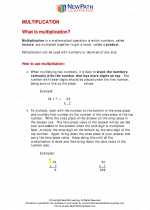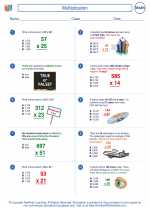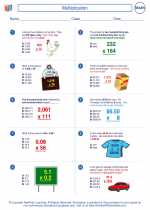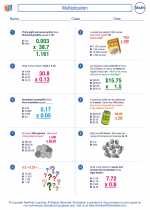Quantitative Methods
Quantitative methods refer to the use of mathematical and statistical techniques to analyze data and solve problems. These methods are widely used in fields such as economics, finance, business, and science to make informed decisions and draw meaningful conclusions from numerical data.
Key Concepts:
- Descriptive Statistics: Descriptive statistics involve organizing, summarizing, and presenting data in a meaningful way. Measures such as mean, median, mode, range, and standard deviation are commonly used to describe and analyze data.
- Inferential Statistics: Inferential statistics are used to make inferences and predictions about a population based on sample data. Techniques such as hypothesis testing, confidence intervals, and regression analysis fall under this category.
- Probability: Probability theory is essential for quantifying uncertainty and randomness. It provides a framework for analyzing the likelihood of events and is crucial for making decisions under uncertainty.
- Linear Programming: Linear programming involves optimizing a linear objective function subject to linear equality and inequality constraints. It is used to solve resource allocation and optimization problems in various domains.
- Time Series Analysis: Time series analysis focuses on analyzing and forecasting data points collected at regular time intervals. It is commonly used in finance, economics, and environmental studies to identify patterns and make predictions.
Study Tips:
- Practice Problems: Solve a variety of quantitative problems to reinforce your understanding of concepts and techniques.
- Use Software: Familiarize yourself with statistical software such as R, Python, or SPSS to perform data analysis and conduct statistical tests.
- Understand Assumptions: Pay attention to the underlying assumptions of different quantitative methods and their applicability to real-world scenarios.
- Review Formulas: Memorize and understand key formulas and their interpretations to apply them effectively in problem-solving.
- Seek Help: If you encounter challenges, don't hesitate to seek help from teachers, tutors, or online resources to clarify your doubts.
Applications:
Quantitative methods have diverse applications, including:
- Financial analysis and risk management
- Market research and consumer behavior analysis
- Quality control and process improvement in manufacturing
- Medical research and clinical trials
- Environmental impact assessment and forecasting
By mastering quantitative methods, you can enhance your analytical skills and make informed decisions based on empirical evidence and rigorous analysis.
.◂Math Worksheets and Study Guides Sixth Grade. Multiplication
Study Guide Multiplication
Multiplication  Worksheet/Answer key
Worksheet/Answer key Multiplication
Multiplication  Worksheet/Answer key
Worksheet/Answer key Multiplication
Multiplication  Worksheet/Answer key
Worksheet/Answer key Multiplication
Multiplication 

 Worksheet/Answer key
Worksheet/Answer key
 Worksheet/Answer key
Worksheet/Answer key
 Worksheet/Answer key
Worksheet/Answer key

The resources above cover the following skills:
The Number System
Compute fluently with multi-digit numbers and find common factors and multiples.
Fluently multiply and divide multi-digit whole numbers using the standard algorithm. Express the remainder as a whole number, decimal, or simplified fraction; explain or justify your choice based on the context of the problem.